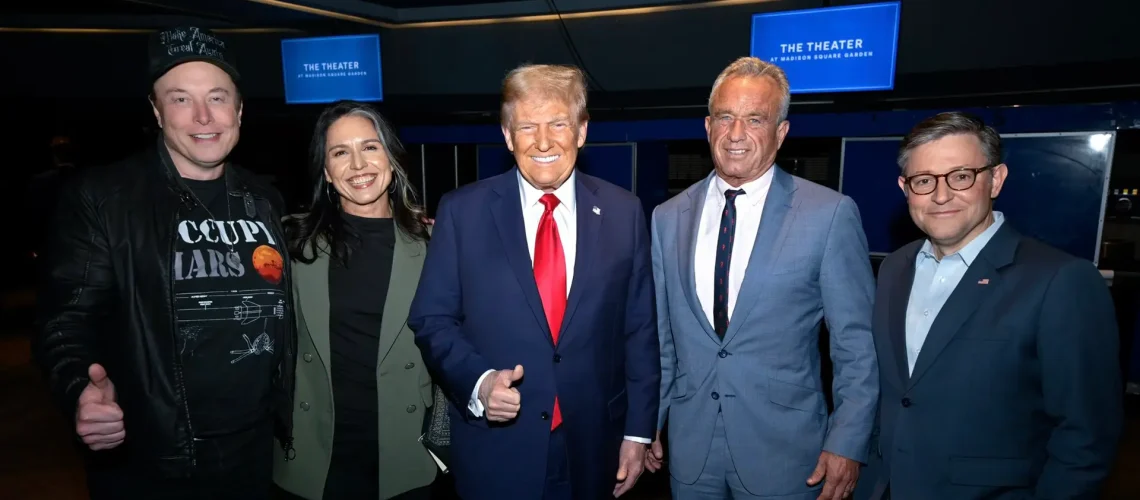Elon Musk, the world’s richest man, recently caused global controversy when he made a gesture during President Trump’s inauguration that many likened to a Nazi salute. Historically tied to fascism and the atrocities of the Nazi regime, this action sparked outrage and heated debates worldwide. The lingering question remains: Was this an impulsive mistake or a calculated move?
Musk’s Flair for Provocation
Musk has built a reputation for his provocative and unconventional actions. His immense wealth and influence often seem to shield him from the consequences that ordinary people might face, allowing him to test societal boundaries. This latest gesture could be interpreted as a deliberate attempt to provoke public reaction or even normalize taboo-breaking behavior. Observers note that Musk has frequently used controversy to capture attention and steer conversations, and this incident appears to align with that pattern.
Some speculate that Musk might be attempting to subtly shift societal norms. By challenging deeply ingrained taboos, he could be aiming to desensitize the public and gradually move what is deemed acceptable behavior. This tactic, often referred to as shifting the Overton window, can have profound effects on cultural and political discourse. However, it also carries significant risks, particularly when the actions in question evoke historical traumas like fascism.
Global Interpretations and Consequences
The fallout from Musk’s gesture underscores how the same action can be interpreted in drastically different ways across the world. In Russia, for instance, this incident could be weaponized as propaganda to bolster the Kremlin’s claims about Western hypocrisy. Russian state media often portrays the West as morally corrupt and aggressive, and Musk’s actions might be presented as evidence to support these narratives. This would align with Russia’s broader justification for its actions in Ukraine, which it frames as a fight against “Nazism” and Western encroachment.
In the United States, the reaction has been polarized. Democrats and human rights organizations have condemned Musk’s gesture as deeply inappropriate, while extremist groups have lauded it, seeing it as an endorsement of their ideology. This dual reaction highlights the deep divisions in American society and the way influential figures can inadvertently—or intentionally—exacerbate such fractures.
The Risks of Normalizing Taboo Behavior
Musk’s actions can also be viewed through the lens of his broader strategy to disrupt norms and challenge societal expectations. By pushing boundaries, he may be trying to open up conversations around formerly off-limits topics or test how far public tolerance can stretch. However, there is a fine line between challenging norms and legitimizing harmful behaviors. When public figures use their platforms in ways that blur this line, the potential for damage is significant.
One of the most concerning aspects of this incident is the possibility of desensitization. By repeatedly witnessing controversial or offensive gestures, societies may gradually become less reactive to them. While this could lead to more open discussions, it also risks eroding the shared values and symbols that hold societies together. Musk, with his global reach and influence, has the power to accelerate such shifts—whether intentionally or not.
Public Figures and Their Responsibility
In a hyper-connected world where information spreads at lightning speed, public figures wield immense power. Their actions can influence public opinion, shape cultural norms, and even impact international relations. With this power comes a significant responsibility to consider the broader implications of their behavior.
Musk’s gesture raises important questions about the ethical responsibilities of influential individuals. Was this a moment of thoughtlessness, or a calculated act aimed at testing societal boundaries? Either scenario carries serious implications. If it was intentional, it reveals a willingness to exploit sensitive symbols for attention or to provoke change. If it was accidental, it highlights the need for greater awareness of how actions can be perceived and the ripple effects they can create.
Implications for the Global Stage
The controversy surrounding Musk’s salute also illustrates how interconnected the world has become. An action taken in one country can quickly become a global issue, interpreted and reinterpreted through various cultural and political lenses. This interconnectedness amplifies the potential consequences of actions by high-profile individuals, making it all the more critical for them to act thoughtfully.
For example, Musk’s gesture could have far-reaching implications for international relations. In addition to being used as propaganda in countries like Russia, it might influence how other nations perceive the United States under Trump’s leadership. Such incidents can contribute to broader narratives about the decline of Western moral authority, complicating diplomatic efforts and fueling tensions in already volatile regions.
Conclusion: A Moment of Reckoning
Whether Musk’s gesture was a deliberate provocation or an unintentional mistake, it serves as a stark reminder of the power and responsibility that come with global influence. Public figures like Musk are not just business leaders or innovators; they are cultural and political actors whose actions can shape the world in profound ways.
This incident calls for a deeper examination of how we hold influential figures accountable and the societal impact of their actions. It also underscores the importance of vigilance in protecting the values and norms that underpin democratic societies. Musk’s actions may have been a fleeting moment, but the debates they have sparked will likely resonate for years to come.
In the end, this controversy is about more than just one man’s actions. It is a reflection of the broader challenges facing a world where power, influence, and accountability are constantly being renegotiated. As societies grapple with these questions, Musk’s salute stands as both a warning and a call to action, urging us to think critically about the kind of world we want to create—and who we allow to shape it.
Photo: From Office of Speaker Mike Johnson – X.com, Common License, https://commons.wikimedia.org/w/index.php?curid=155899472






